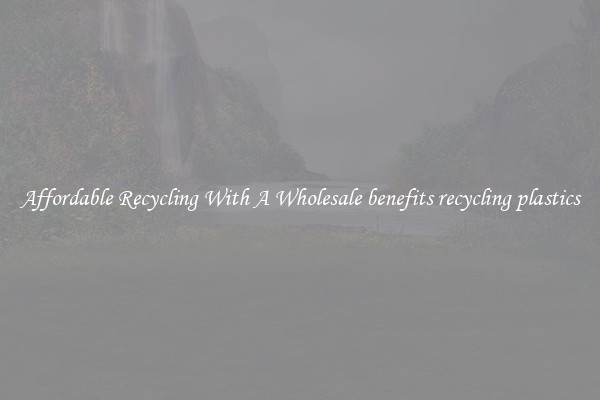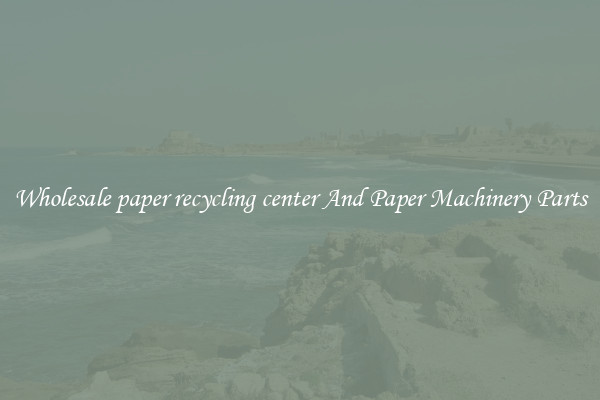Affordable Recycling With A Wholesale benefits recycling plastics
Affordable Recycling With Wholesale Benefits: The Future of Plastic Recycling

Plastic waste has become a significant environmental concern worldwide, with the equivalent of one garbage truck full of plastic being dumped into the ocean every single minute. As this problem continues to escalate, finding sustainable and affordable ways to recycle plastics is of utmost importance. One solution that has gained traction in recent years is wholesale plastic recycling, which offers numerous benefits to both the environment and businesses.
Wholesale plastic recycling refers to the process of collecting, sorting, and processing plastic waste on a large scale. This method allows for cost reductions, making recycling more affordable for businesses and individuals alike. By consolidating the collection and processing of plastics, wholesale recycling facilities can leverage economies of scale, reducing overall costs and translating these savings to the end consumer.
One major advantage of wholesale plastic recycling is the potential for creating new products with recycled plastics. Through advanced recycling technologies, plastics can be transformed into high-quality materials suitable for various applications. These materials can then be sold at a lower cost compared to products made from virgin plastics, benefiting both manufacturers and consumers.
Furthermore, wholesale recycling of plastics can significantly reduce the environmental impact of plastic waste. By diverting plastics from landfills and incineration plants, wholesale recycling facilities help to conserve natural resources and reduce carbon emissions. For example, the production of recycled polyethylene terephthalate (PET) saves up to 60% of the energy required to produce virgin PET, according to the American Chemistry Council.
Another wholesale benefit of plastic recycling is the potential to promote a circular economy. A circular economy aims to minimize waste by continually reusing and recycling materials. By implementing wholesale recycling practices, plastics can be kept in circulation, reducing the need for new production and ultimately decreasing the overall demand for virgin plastics. This shift towards a circular economy has the potential to create a more sustainable future, where plastic waste is minimized, and resources are conserved.
To further encourage wholesale plastic recycling, governments and organizations should invest in infrastructure and research to improve and optimize the recycling process. This could include developing more efficient collection systems, investing in advanced recycling technologies, and promoting research and innovation in the field of sustainable packaging.
In conclusion, wholesale plastic recycling offers an affordable and sustainable solution to the growing problem of plastic waste. By consolidating the collection and processing of plastics, wholesale recycling facilities can reduce costs, create new products, and promote a circular economy. Governments, businesses, and individuals should embrace this approach to recycling and invest in its development to ensure a cleaner and greener future for our planet. Together, we can make a significant impact in reducing plastic waste and preserving our environment for future generations.

View details

View details

View details

View details








